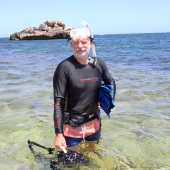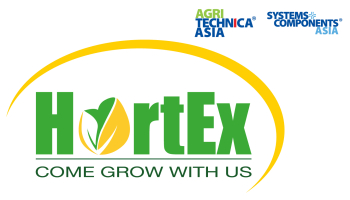

A novel system for cultivating seaweeds in the ocean
Dr Michael Rule, Principal Marine Ecologist, Drift Consulting, Australia
About the speaker:
Dr Michael Rule is a highly experienced marine ecologist with a PhD in invertebrate ecology. Michael has worked across a broad range of marine habitats and communities, from the tropics to the sub-Antarctic and has worked in both the private and public sectors. He was a government research scientist for over a decade, where he established marine monitoring programs for a variety of assets (especially seagrass and macroalgae) across the entire coast of Western Australia, and undertook novel research for marine communities (blue forests). More recently, Michael has undertaken seaweed farming research which has focused on developing techniques for monitoring seaweed to understand farming seasonality, ocean farming establishment, land-based production optimistation, farm stock assessment, on-farm monitoring, and data management and analysis
Organisation:
Drift operates at the interface where scientific research and industry innovation meet. With over a decade’s experience in phycology and seaweed aquaculture, and more than 20 year's experience in marine ecological research and monitoring, Drift are well placed to assist and advise in the set-up and optimization of farm.
Presentation:
Aquaculture is a diverse, evolving industry with new, innovative technologies being developed around the world. The seaweed cultivation industry is constantly seeking to optimise work-flow and increase production, while being environmentally friendly. Seaweed; however, is a relatively low value product, and so highly engineered and technical innovations are often not cost-effective. Typically, seaweed is largely cultured on ropes, either through propagules or spores being applied directly to rope by seeding in the laboratory, or by tying fragments of established plants onto ropes. Other solutions include attaching seaweed to mesh racks, baskets or nets. All of these cultivation techniques expose the seaweed directly to extreme ocean conditions, particularly wave action, and in many cases large numbers of plants are dislodged or damaged by storms or during handling. Transport of seaweed from the hatchery to the ocean can also cause stress and damage to plants, and have an effect on the health of plants. Predation by herbivores is also a significant problem resulting in considerable crop losses, especially for small, sensitive plants. Here we present a novel technology for farming of higher value seaweed products, or for raising new, sensitive propagules, in the ocean. The system is relatively cheap, easy to deploy, and has shown great promise in protecting delicate seaweeds and increasing yields.

